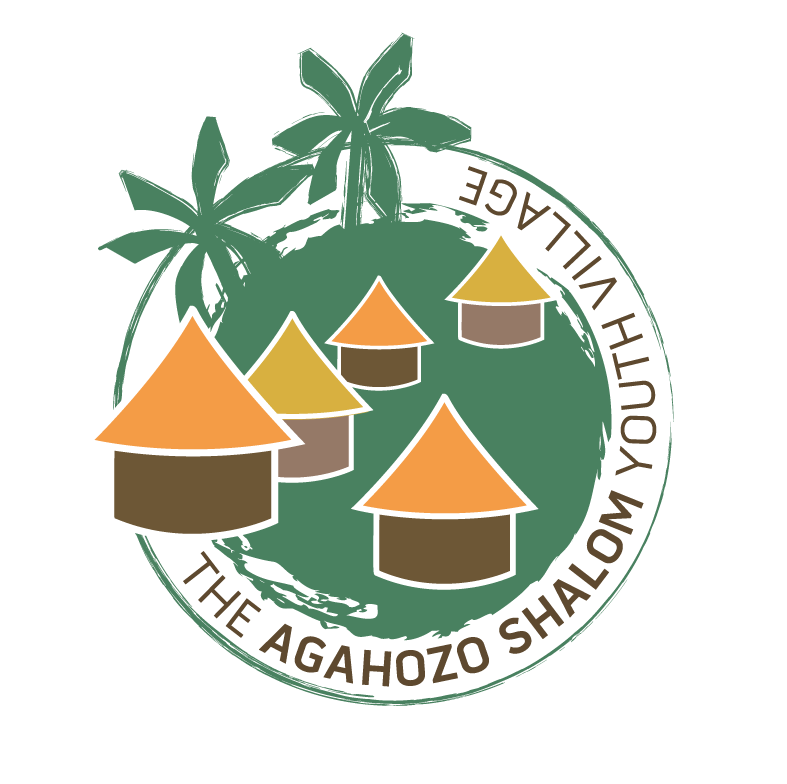Our Students Are Innovating Their Way to a Better Future
Djibril (right) explains his winning STEAM Fair project to his fellow students.
Every spring, we invite our Agahozo-Shalom Youth Village (ASYV) students to showcase their creativity, knowledge, and problem-solving skills by submitting original projects to the Village Science, Technology, Engineering, Art, and Mathematics (STEAM) Fair. Through the fair, students also learn that they have the power to address pressing real-world challenges. This year’s theme was “Innovate for a Sustainable Future,” and our kids submitted over 30 impressive projects. We sat down with two students whose group projects took home top awards: Djibril Mugisha, ASYV Class of 2028, and Niyogisubizo Fille, ASYV Class of 2027.
Niyogisubizo Fille, ASYV Class of 2027
Could you describe your projects?
Djibril: My group created a prototype of a boat that has a conveyor belt mechanism that moves plastic waste from bodies of water into a bin at the back of the boat.
Fille: We made an irrigation prototype that collects wasted water and distributes it in small pipes across farmland using solar power. The project conserves water and uses solar power in case areas have limited access to electricity. If the farmer needs to move somewhere else to plant their crops, the system is easily portable.
What motivated you to create these projects?
Djibril Mugisha, ASYV Class of 2028
Djibril: Every year there are millions of tons of plastic that are deposited in our water bodies, and it really harms aquatic animals and people. Before coming to ASYV, this was a problem I saw, but I thought, “What can I do? I have poor skills.” ASYV gave me everything I needed to grow confidence and the skills to turn my ideas into a real project and solution.
Fille: Our country is encouraging people to use renewable energy, and I am really passionate about sustainability. Creating this project showed me that the skills we are learning in electronics class and school really work in the outside world. I also learned brand new skills. For example, before, I did not know how to connect solar batteries to produce energy or use a motor to push water up. Now I can do both on my own, which feels amazing.
How did you feel when your team won a STEAM Fair prize?
Djibril: I think the biggest prize is that we did a great project and saw that it is capable of solving one of the world's biggest problems. I am happy to know that the skills I will gain in high school can be used to create solutions to problems that are being faced by the whole world.
Fille: It felt amazing that our project could be the best. When a guest judge saw our project, they told us they know of a company that does something very similar and encouraged us to connect with them. I was really motivated to hear that, and it made me feel confident that we can roll out our prototype. I realized bringing change to the community does not require something huge. It just requires applying your skills.
Learning The Power of an Idea
Deborah gives her ASYV Next Gen talk on empowerment through education.
On a recent Saturday evening, our entire student body gathered at the amphitheater for our first-ever Next Gen Talks—an ASYV spin on TED Talks. After six weeks of preparation, one girl and boy from each grade took the stage. One by one, they presented seven-minute speeches exploring a topic defining their generation, from the ethics of AI to promoting mental well-being in schools to climate action.
“At first, I was really nervous,” says first-year student Deborah Mwamikazi, who had never before made a speech in front of a large audience. “But when I was on the stage, I saw that everybody wanted to hear what I was saying.” Indeed, after her speech about empowerment through education, the crowd erupted in cheers and applause.
“The point I most wanted to make to the audience was about the importance of mentorship in education,” says Deborah.
The Next Gen Talks series was the brainchild of ASYV’s Student Government President, John Kelly Rukundo. “I wanted to motivate my peers to embrace leadership and practice public speaking,” says John Kelly, who suggested topics for the speakers and mentored them throughout the preparation process. “Next Gen Talks is not a competition, but an opportunity to learn from each other and contribute to the discourse on global issues.”
Deborah’s biggest take away from the evening? “People showed they believed in me,” she says. “I will definitely recommend Next Gen to my grade-mates so they can engage with important topics and boost their confidence.”




